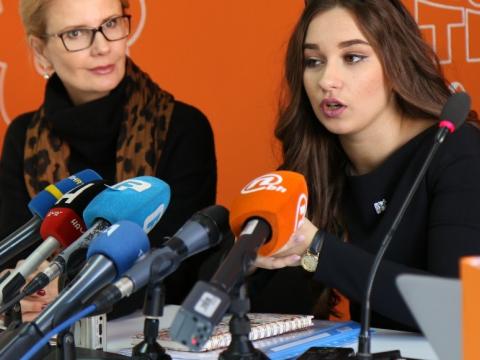COVID pandemic leaves Middle East and Eastern European children with a legacy of fear

NOV 20, 2020.
New research Act Now for Children spotlights children and young people's fear about infection, going hungry and having their future's impacted by the pandemic, but also their resilience and determination to keep going.
International aid agency World Vision has carried out research exploring the stress children in the Middle East and Eastern Europe Region are under due to COVID-19. In addition to their fear that they themselves or their loved ones will catch the disease, children worry about economic hardships, the loss of their education, increased violence and social isolation.
13-year-old Dil Aqa, from Afghanistan said, “I feel the world is over, I think about the future, what will happen? Can I be happy again? Now I am very saddened.”
“As leaders, we are continually challenged to ensure we are listening to children and acting on what we hear, to ensure relentlessly pursue our vision for every child. In the Middle East and Eastern Europe region, we have listened to 762 children across 12 countries on how COVID-19 is changing their lives. We need to Act Now to what the children are telling us to ensure COVID-19 does not destroy an entire generation” confirmed Eleanor Monbiot, Regional Leader for World Vision in the Middle East and Eastern European region, speaking at today’s launch.
The findings are stark:
- Almost half of the survey participants feel sad (49%) and worried (49%) – and more than one-third feel scared (39%).
- 60% of adolescents worry about falling into poverty, with Afghanistan (99%), Iraq (93%), Syria (89%) and Lebanon (73%) having the highest numbers.
- Half of the boys and girls fear that they and their families won’t have enough to eat, with Afghanistan (99%), Iraq (75%), Syria (74%) and Lebanon (65%) demonstrating the highest percentages.
- 20.2% of surveyed children reported at least one case of physical violence with the perpetrator being a family member for the majority of them (71.8%).
However, the research also found that despite serious struggles, young people are finding ways to cope, they want to make a contribution and they want their voices to be heard. "We can raise funds to buy masks, gloves and disinfectants and give them to people or families who cannot afford buying those items." A 16-year-old boy in Kosovo said.
“We see hugely encouraging signs that young people in the region are responding to the challenges created by the pandemic. More than two-thirds (71.4%) of surveyed children are most often optimistic about the future despite their current fears. 77.7% of girls and 85.2% of boys most often feel useful” said Sophia Petriashvili, Director of Ministry Quality for World Vision in the Middle East and Eastern Europe Region. “More importantly, she continued, we heard clearly and urgently that young people in the pandemic want to have their voices heard, their rights respected, and want to be included in decision-making processes”.
Their ask to their governments are clear:
- More supplies to fight the spread of the disease
- Access to up-to-date and reliable information about how to protect themselves
- Impose and enforce safety measures
- Provide free and comprehensive health care for families who contract the virus
- Safe recreational spaces
- Enforce laws that protect children from violence at home and in the streets
- Safely open schools again and where that isn’t possible, to provide lessons on radio and TV
- Improve access to electronic devices and the internet, especially in poor, rural and vulnerable communities, and
- Provide food, regulate the price of food and to provide financial assistance and livelihood opportunities to families.
Based upon evidence generated by this research World Vision calls on governments, donors, UN agencies and civil society (including faith leaders) to:
- Recognise and embrace children and young people as rights-holders and social actors with the ability to contribute to stopping the spread of COVID-19
- Ensure child protection is prioritised as a lifesaving intervention in all national COVID-19 responses, investing in humanitarian and development initiatives to prevent, mitigate, respond to and end all forms of violence against girls and boys
- Include multi-sectorial programming, especially ensuring child-sensitive and gender-responsive social protection interventions are in place for the most vulnerable, especially female-headed, single parent, and child-headed households and displaced communities (eg, those living in fragile contexts or host countries) throughout the response and recovery phases.
ENDS.
Editor Notes:
For further information please contact: Leah Donoghue, Director of Communications and Advocacy World Vision MEER at leah_donoghue@wvi.org
World Vision is a Christian humanitarian organisation dedicated to working with children, families, and their communities to reach their full potential by tackling the root causes of poverty and injustice.